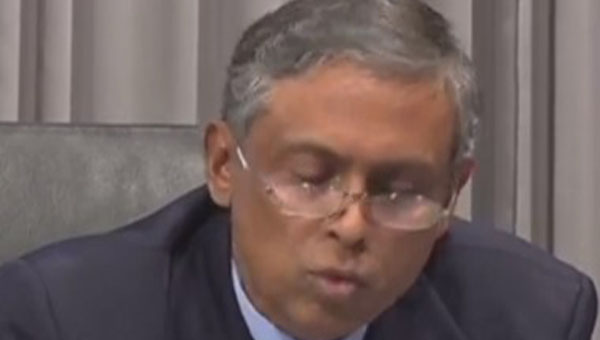PORT OF SPAIN, Trinidad and Tobago, May 1, 2020 (CMC) – The University of the West Indies (UWI) and the World Health Organisation (WHO) are collaborating on a large, international project, examining options for drugs to treat the coronavirus (COVID-19).
Dean of the faculty of Medical Sciences at the St. Augustine campus of the UWI, Professor Terence Seemungal, speaking at the daily news conference of the Ministry of Health, here, said that the WHO has come up with a study, titled “Solidarity”.
“This is a large, international trial that will be looking at options for therapy. It is proposed that the study be done, throughout the countries, in which there is a University of the West Indies campus…and that will be Trinidad and Tobago, Barbados, Jamaica and the Bahamas,” Professor Seemungal reported.
“We have a committee, across the four countries, that is chaired by one of our colleagues, Professor Marvin Reid, of the Mona Campus (Jamaica),” Seemungal disclosed.
He told reporters that apart from its international design, the study will also examine four therapeutic options, namely: Remdesivir, which was originally developed as an Ebola treatment; Ritonavir, an oral medication that is used for treating human immunodeficiency virus (HIV) infection; Interferon, which is used to treat various cancers; and hydroxychloroquine, used to treat and prevent malaria.
He said these drugs will be used “versus standard care or usual care, whatever that is, in the country, in which the study is being done”.
Seemungal said that patients will be given the opportunity of enrolling in the study “and if they say yes, they will have to sign a consent form and, of course, further information will be given to them”.
“The study compares these drugs, against what we call the usual care or standard of care, and if someone opts to go into the study, they cannot say which line of treatment they must get. It is what we call randomised, and the randomization process is done by the WHO,” Seemungal added.
“We hope that after this study, there will be clear evidence, as to which of these drugs will help in the treatment of COVID-19,” he said.
 Pride News Canada's Leader In African Canadian & Caribbean News, Views & Lifestyle
Pride News Canada's Leader In African Canadian & Caribbean News, Views & Lifestyle





